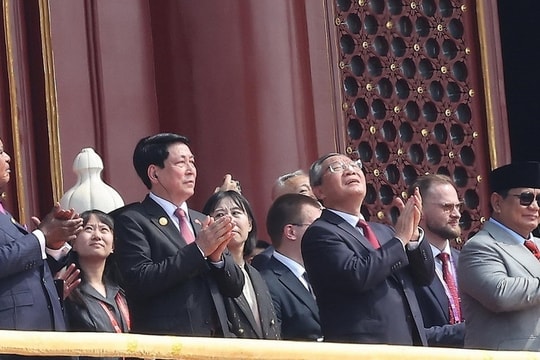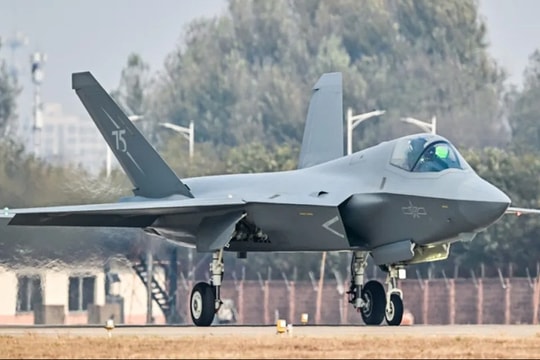China's Footprints Around the World
From Zimbabwe to Myanmar, China's global role and influence are becoming increasingly evident.
 |
Zimbabwean President Robert Mugabe (left) and Chinese President Xi Jinping. Photo: AFP. |
Since 1954, China has promoted the principle of "non-interference in the internal affairs of other countries" in its foreign policy, rejecting American-style interventionism. Instead, they have increased economic intervention in unstable countries such as Myanmar or Zimbabwe, helping Beijing gain an increasingly strong global position, according to AFP.
China recently made an unusual move by proposing a strategy to resolve the crisis involving Rohingya Muslim refugees from Myanmar who are flooding into the Bangladesh border area.
Beijing has also increased its role in the Middle East, its main source of oil. After long staying on the sidelines, China has now offered to host talks on the Syrian crisis and the Israeli-Palestinian conflict.
China is expected to take on a greater role in world affairs because it is “no longer the underdog,” said Kerry Brown, a China expert at Imperial College London. “An elephant cannot pretend to be a mouse forever,” he said.
Global footprint
 |
China's 21st Century Silk Road. Graphics: Viet Chung (Click on the image to view larger image). |
China's overseas footprint is starting to deepen with its ambitious "Belt and Road" infrastructure project across Asia and Europe to revive the "Silk Road" trade routes through a massive network of railways and sea routes.
As Beijing's overseas interests expand, "naturally, the question of how to protect those interests will arise," said Chinese political commentator Chen Daoyin.
At the 19th National Congress of the Communist Party of China last month, President Xi Jinping set an ambitious goal of turning China into a leading power with the most powerful military.
Chen noted that Xi's declaration of "upholding world order" shows an increasingly proactive role for China on the international stage and is approaching that of the United States.
While China will not publicly abandon its non-interventionist approach, it will “gradually weaken it, gradually changing from non-intervention to neutrality and eventually intervention,” Chen predicted. “When China’s national interests abroad are harmed, it is entirely possible that they will use the pretext of protecting their investments and citizens to mobilize troops to intervene.”
Beijing has also been gradually strengthening its military power. China opened its first overseas military base in Djibouti in August. It has also illegally built many military structures on artificial islands it has illegally reclaimed in the East Sea.
However, even without direct military intervention, China tends to get caught up in the political maelstrom of the countries it visits, although Beijing says it wishes to maintain its position as a neutral political force.
Zimbabwean army chief Constantine Chiwenga made an official visit to Beijing days before the country’s military coup that led to the resignation of President Robert Mugabe, raising speculation that Beijing may have somehow influenced the Zimbabwean military’s decision.
The Chinese leadership has a close relationship with Mr. Mugabe and has invested heavily in Zimbabwe over the years.
Kerry Brown said he was "sceptical" about speculation about China's involvement in Zimbabwe, but that as a superpower, choosing sides was inevitable.
“If someone else gives you power, you have it and you have influence,” Mr. Brown said. “So neutrality is not sustainable.”
 |
A Chinese-invested thermal power plant in Zimbabwe. Photo: SCMP. |
In Cambodia, China is the largest source of foreign investment, reaching $11.2 billion, as of the end of 2016. As a result, Cambodia has become increasingly dependent on China, according to Brian Eyler, director of the Southeast Asia program at the Stimson Center, a US-based policy institute.
Myanmar is also receiving continued support from China. Beijing has invested billions of dollars in ports, oil and gas exploration in Myanmar’s Rakhine state, including a $2.45 billion oil pipeline that went into operation in April.
“Everything seems to be linked to China, from Zimbabwe to Myanmar to Sri Lanka to politics in New Zealand. It’s an extraordinary shift,” Mr Brown said.
"The idea of non-interference has probably become impossible. Even if China does not want to get involved, the problem will now find itself," Brown emphasized.
According to VNE
| RELATED NEWS |
|---|






.jpg)

